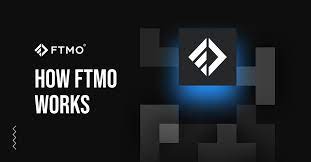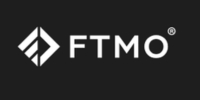FTMO is widely regarded as the most established name in retail proprietary trading. It became one of the first firms to offer remote, performance-based evaluations that allow traders to access funded accounts without using their own capital beyond an upfront fee. Its reputation has been built on structured rules, consistent communication, and a payout history that spans several years.
Despite increased competition from newer prop firms offering lower entry costs or instant funding, FTMO continues to attract disciplined traders due to its clear framework and reliable operating record. This review examines how FTMO works, its account structures, costs, rules, payout terms, and whether professional and retail traders still consider it a strong option in today’s prop trading landscape.
How FTMO Works and Operates

Find Out How You Can Benefit With FTMO
FTMO uses a two-stage evaluation system: the FTMO Challenge and the Verification. Traders must meet profit targets while staying within defined daily and overall drawdown limits. Once both phases are passed, the account transitions to a funded stage where profits are shared with the trader.
The firm maintains strict oversight of risk parameters, which is the foundation of its model. Traders operate entirely with firm-backed capital once funded, and FTMO bears the financial exposure on its side. The structure prioritises consistency and risk control, making the process demanding but fair.
FTMO’s model differs from newer firms in two key ways. First, it does not provide instant funding; every trader must pass the evaluation unless applying for special programs that remain limited in scope. Second, the rules are enforced with notable discipline, reflecting its focus on long-term sustainability and controlled risk distribution across its trader base.

FTMO Trustpilot Score an Reviews
Available Platforms and Markets on FTMO
FTMO supports MetaTrader 4, MetaTrader 5, DXTrade, and cTrader, ensuring compatibility with most trading strategies, including discretionary, technical, and automated systems. Each platform offers standard charting, execution tools, and integration with various analysis indicators.
Traders may operate across a wide range of markets:
- Forex currency pairs
- Equity indices
- Commodities
- Precious metals
- Energies
- Cryptocurrencies (with leverage restrictions)
FTMO’s market list is broad enough to support both short-term and long-term approaches, and execution quality is generally stable due to partnerships with tier-one liquidity providers.
FTMO Account Types, Fees, and Payout Structure
FTMO offers several account sizes across its two-stage evaluation model. Pricing scales with account size, and the structure remains consistent across all options.
Here is a simplified overview of the core two-phase evaluation accounts:

FTMO $10,000 Evaluation Process

FTMO Plans Comparison and Prices
How FTMO’s Two-Stage Evaluation Works
FTMO Pros and Cons
Pros
Cons
FTMO FAQs
Final Thoughts: Is FTMO Still Worth It?
FTMO remains one of the most recognised names in prop trading, supported by a long track record, predictable structure, and reliable payout history. Its evaluation framework is firm but fair, and its transparency offers reassurance that newer firms cannot yet match. The higher entry costs and strict rules require discipline, but they are balanced by a strong support system, a clear rulebook, and consistent account management.
For traders who value stability, clarity, and a proven operating footprint, FTMO remains a strong choice. Those seeking lower entry fees, instant funding options, or larger scaling targets may explore newer firms, but FTMO maintains advantages that continue to attract serious traders.


